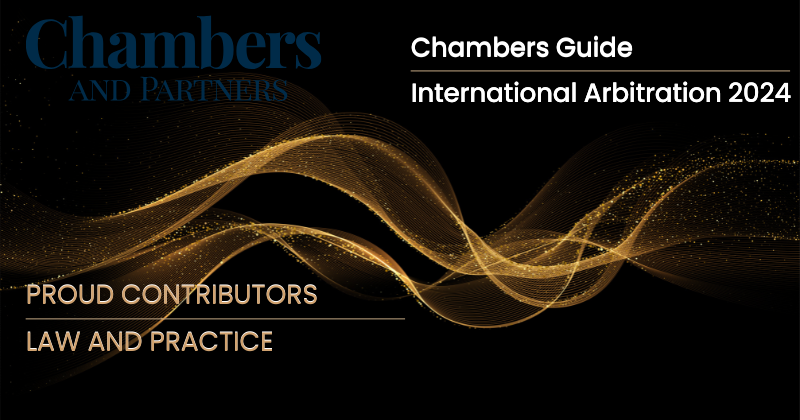Insider Trading
Following the amendments, insider trading was defined as encouraging another person, whether or not that other person knows it, to deal in securities or their derivatives which are price-affected securities in relation to the information the insider possesses. Further, the person must know or have reasonable cause to believe that the trading would take place. It also includes disclosing the information, otherwise than in the proper performance of the functions of his employment, office or profession, to another person.
Such an act is only illegal if done by a person who deals in listed securities or their derivatives whose prices may be affected due to information in the person’s possession. In simpler terms, it is dealing in shares or securities of a listed company by insiders such as directors, managers, employees or any other connected persons such as auditors, consultants and lawyers who possess information that is not available to the public. The aim of prohibiting insider trading is to protect investors and the public at large since it only serves to profit the few insiders with advantageous information. For this and other reasons, the Act extends the mandate of the Capital Markets Authority (the Authority) to combating insider trading, as analysed below.
Section 2 of the Act defines an insider as any person who is or was connected with a company, or is deemed to have been connected with a company and is consequently reasonably expected to have access to unpublished information which, if made generally available, would be likely to materially affect the price or value of the securities of the company. Additionally, an insider is one who has received or has had access to such unpublished information. In the case of Aly Khan Satchu v Capital Markets Authority (2019) eKLR, it was emphasized that in considering whether a person was an insider, the Court was called upon to look into the true nature of the relationship of the person to the company, particularly whether the person had access to price-sensitive information which was otherwise not accessible to the public.
Section 32 of the Act defines inside information as information relating to particular securities or to a particular issuer of securities, which has not been made public and if it were made public is likely to have a material effect on the price of the securities. Therefore, if an insider acts on information that is in the public domain, then an allegation of insider trading cannot be sustained.
To illustrate, in Republic v Benard Mwangi Kibaru (Criminal Case No.1337 of 2008) (Unreported), the accused person was an employee of Uchumi Supermarkets Limited and had been attending the listed company’s board meetings on invitation to discuss the profitability and turnaround efforts of the company. He then sold his shares in the company, after which he was accused of insider trading. The Court returned a finding of not guilty since information on the supermarket’s poor performance was public knowledge and the prosecution did not prove beyond reasonable doubt that the accused person exploited information not generally available to the public.
Capital Markets Authority
The Authority is established under section 5 of the Act and consists of eleven members – a Chairperson appointed by the President on recommendation of the Cabinet Secretary in charge of matters relating to finance; the Chief Executive of the Authority, six other members appointed by the Cabinet Secretary; and representatives from the office of the Permanent Secretary to the Treasury, the Central Bank of Kenya, and the Attorney-General’s office. Of relevance to this article are the objectives of the Authority to create and maintain a market in which shares and securities are traded and issued in an orderly, fair and efficient manner and to protect the interests of investors.
The Authority has the power to conduct investigations and inspections of the books, accounts or activities of undertakings approved or licensed by the Authority. Related to this is the power of entry and inspection, which the Authority’s Chief Executive Officer may authorize an officer of the rank of Senior Officer or above to exercise on the Authority’s behalf. Notably, the Authority must apply for a warrant in the Magistrate’s Court to exercise this power.
The Authority is empowered to impose sanctions for breach of the Act’s provisions, levy financial penalties, order a person to remedy or mitigate the effects of a breach of the Act, publish findings of malfeasance by any person; and suspend or cancel the listing or trading of any securities or exchange-traded derivatives contracts. However before the Authority imposes sanctions, it must give the person it investigates an opportunity to be heard.
The Kenol Kobil Matter
An example of the Authority’s exercise of its powers was witnessed in relation to the Kenol Kobil takeover by French company, Rubis Énergie. On 8th July 2019, the Authority published a press release to the effect that it had exercised its powers when it noted suspicious trading in the run-up to the announcement of the takeover. Fourteen (14) accounts were identified in connection with purchasing a total of 62,699,700 Kenol Kobil shares worth KES 938,382,800 (USD 9.38 Million) with potential illegal gains amounting to KES 503,710,300 (USD 5.03 Million). The Authority placed a caveat on the accounts and obtained a warrant from the Magistrate’s Courts to seize relevant electronic machines and devices to establish the persons who might have shared non-public price sensitive information or used the information to trade in Kenol Kobil shares.
As the Act also empowers the Authority to delegate its powers to an ad-hoc committee, the Authority formed an ad-hoc committee and tasked it to conduct a hearing on the matter, with a view to determining whether the suspicious activity constituted insider trading. The committee consisted of the Board’s Chairperson, four members of the Authority and four external members. Upon consideration of the matter, the committee found Mr. Andre DeSimone, Mr. Aly Khan Satchu and Mr. Kunal Somchand Bid culpable of insider trading and meted out various sanctions including financial penalties, forfeiture of financial gains made through commissions, and disqualification from holding office in listed companies for periods of one (1) year for Mr. DeSimone and three (3) years for Mr. Satchu.
Appeal Mechanisms
A person aggrieved by the decision of the Authority may appeal to the Capital Markets Tribunal (the Tribunal) within fifteen (15) days of the decision being communicated to them. This provides a statutory remedy, which means that aggrieved persons do not necessarily have to seek recourse from the Court at this stage. A person aggrieved by a decision of the Tribunal may have recourse to the High Court within thirty (30) days of the order or decision.
The Tribunal has all the powers of the High Court to summon witnesses, take evidence, call for production of books or documents, award costs and direct the taxation of costs. Notably, the Tribunal may admit evidence it considers relevant to the case before it even if it might otherwise be inadmissible before a Court of law under the law relating to evidence. This leniency in the rules of evidence gives parties more flexibility when making their case before the Tribunal. In the Aly Khan Satchu case, the Court found that the Applicant ought to have lodged an appeal to the Tribunal instead of applying for judicial review orders in the High Court. Nonetheless, the Court proceeded to consider the case on its merits and ultimately ordered that it be remitted to the Authority for an independent and impartial committee to be constituted to hear the matter. The Court set aside the orders that the committee had given in relation to the dispute and ordered that the dispute be determined afresh within six (6) months of the Judgment. However, the Judgment has since been appealed against to the Court of Appeal and is awaiting determination.
It is also noteworthy that in the Aly Khan Satchu case, it was argued that the Authority was undertaking inquisitorial proceedings to find the Applicant guilty of a crime, which the Authority lacked the jurisdiction to do, as insider trading is proscribed as a criminal offence under the Act. It was therefore contended that the matter ought to be prosecuted as a criminal offence through the office of the Director ofPublic Prosecutions.
To resolve this issue, the Court distinguished between criminal and administrative sanctions, stating that while the administrative sanctions at the Authority’s disposal had punitive aspects, they were neither criminal nor quasi-criminal in nature. The Court further found that a single act could have multiple consequences and potentially give rise to liability of criminal, civil, administrative, or disciplinary kind, and that while the facts relating to the matter before the Authority could as well have given rise to a criminal charge, this did not alter the nature of the proceedings before the Authority, which were essentially administrative in nature.
Conclusion
That the Authority is empowered to take robust administrative action to combat insider trading is not in doubt. However in so doing, the Authority is required to at all times adhere to the principles of natural justice, the Fair Administrative Action Act, 2015 and the Constitution. The Act provides for an appeal process to the Tribunal where a person is aggrieved by a decision of the Authority, and further appeal to the High Court, thereby providing sufficient corrective mechanisms, if need be, to mitigate and safeguard against any potential excesses or errors that the Authority might make.





